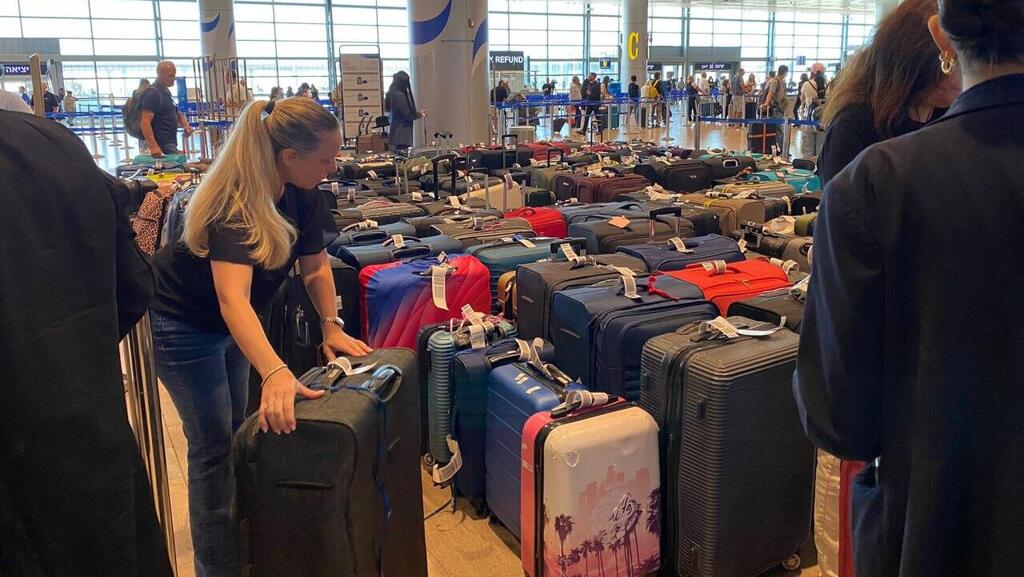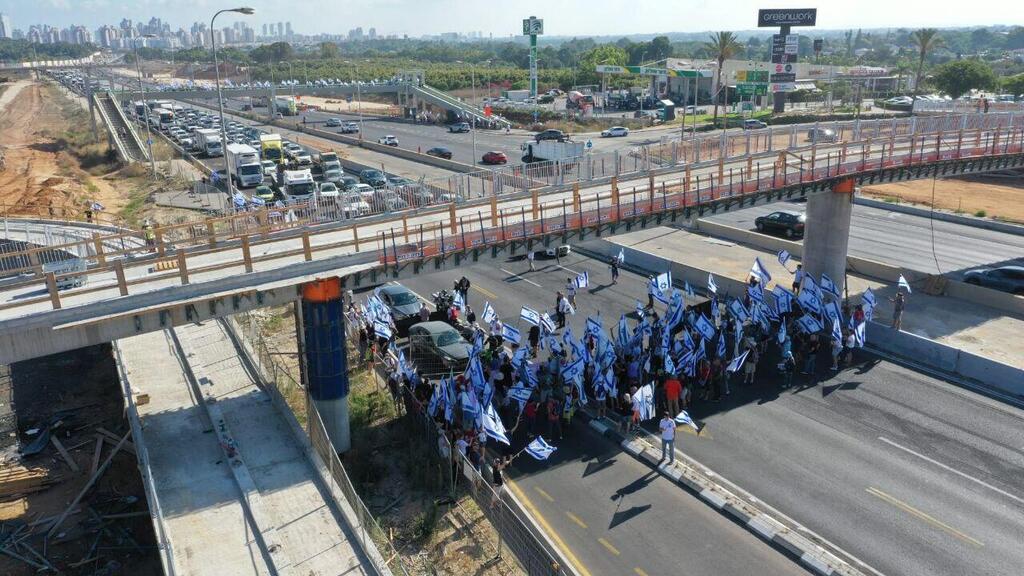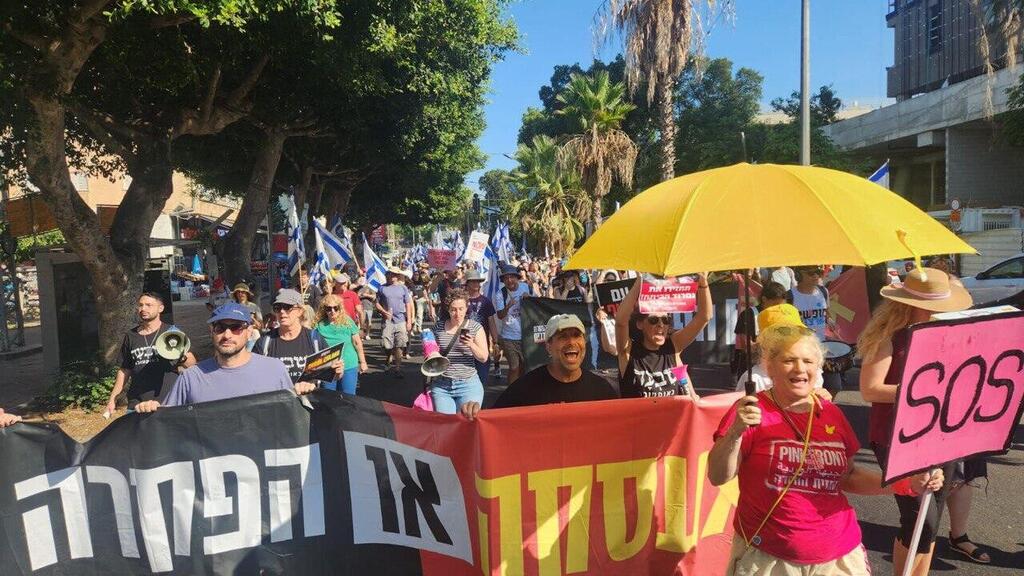Thousands protested beginning Monday morning in a number of locations throughout the country and blocked intersections and roads, following the murder of the six hostages whose bodies were rescued by the IDF and returned to Israel, at the same time as a general strike announced by Histadrut Chairman Arnon Bar David kicked off. Protesters briefly blocked the heavily trafficked Ayalon South highway near the HaShalom Interchange, and after they left, they went down to block the road in the northern directon and lit flares.
Demonstrations and blockades were also recorded at intersections on Route 4, as well as in Rehovot, Herzliya, Jerusalem, Beer Sheva, the Kfar Yarok interchange, Namir-Rokach intersection in Tel Aviv, Modi'in, Hod Hasharon and the Matam intersection in Haifa and called for a hostage deal. At the same time, there were significant disruptions and delays in Ben Gurion airport, where long lines and luggage piled up in the check-in area were recorded. Although departures were supposed to return at 10:00 a.m., at the end of a two-hour suspension of operations, they had not yet returned by mid-afternoon, with the exception of a few flights that were not suspended.
On the Ayalon, a confrontation developed between the protesters and a woman who opposed the protesters. "My son is fighting in Gaza," she said. "He is fighting to save the hostages, he is not lying here and doing nothing. You are not doing anything, just shouting."
In the meantime, the Tel Aviv-Yafo Labor Court located in Bat Yam ruled early in the afternoon that the general strike must end by 2:30 p.m., three and a half hours earlier than planned. "After hearing the parties' positions and reviewing the materials submitted to the case, we hereby grant a temporary injunction against the announced strike, in such a way that the strike will end today at 2:30 p.m.," according to the decision.
Court president Judge Hadas Yahlom, added: "The strike is political, there is no connection between the killing of the hostages and the economy."
Petitions also were submitted by the state as well as the Tikva Forum and the G'vura Forum calling for an end to the strike. They claimed that the strike was an "invalid and anti-democratic decision." They called the strike a "death sentence for the hostages that remain alive," and a "reward for Sinwar."
As part of the series of protest events, hundreds of people came to protest near the Kirya defense headquarters in Tel Aviv, on Begin Road. The demonstrators waved Israeli flags and yellow flags associated with the struggle for the release of the hostages, and carried signs with their pictures.
Long lines and delays at Ben Gurion airport
With the exception of about seven flights that were not suspended, most of them long-haul flights to the U.S., some of which have already taken off, most of flights had not taken off by mid-afternoon. The check-in stations opened and closed, mainly to allow passengers to continue into duty free; the luggage conveyors are were activated intermittently, as well as the El Al counters, leading to long lines.
3 View gallery


Luggage backed up and long lines due to strike at Ben Gurion airport
(Photo: Histadrut )
Reut and Liat from Haifa and Eilat said that they were flying to India, Reut on a one-way ticket and Liat for a month. "We are scheduled to fly with Air Uzbekistan at 1:30 p.m. Right now the flight is on time. I'm in favor of bringing them (the hostages) home, I don't know if there's a strike or not, but we're all already helpless and it's a cry of helplessness. I don't know if it will help or not and what else can be done," they said.
Nitzan, 26, from Tel Aviv, said that she is flying to Thailand for a month and a half. Her flight was scheduled to take off at 2:45 p.m. "I arrived with friends and they were on a different flight, so I took a ride with them and said I would arrive early with everything that is happening. The strike is necessary, it sucks for me but it is important," she said. "I am flying on Etihad with a connection in Abu Dhabi. I am determined, I will come. I hope I won't be late, but I will come."



